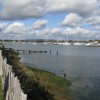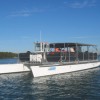Chichester Harbour Events

Chichester Harbour Conservancy have compiled a new list of their inspiring, informative events celebrating the natural wonders of Chichester Harbour. Please see here for the full list of events until the end of March 2022.
At February half term there will be a family fun session at Dell Quay with harbour-related activities both outdoors and in the classroom. For more details and to book see here.
The Solar Heritage is operating two more bird watching trips this season, 6 and 20 February. Please see here for details and to book.
Check out the Harbour Tots sessions for families at the Education Centre at Dell Quay.
Young people (16-19 years) with an interest in conservation and the environment and not afraid to get their hands dirty - why not join our Youth Rangers session - book here - it's free of charge.
Upcoming talks organised by the charity Friends of Chichester Harbour will be advertised on their website, for membership details and to see what’s on, see here.
Chichester Harbour

At 74km2, Chichester Harbour is the largest natural estuary in South East England. It is a living, working landscape, where over 10,000 people live. The Harbour straddles the county boundary between West Sussex and Hampshire, and every year, around 1.5 million people visit, whether to sail the waters or walk the network of footpaths. There are 14 sailing clubs in... Read More»
Maritime History

For most of its history, Sussex has been an agricultural county. The Chichester area, with the fertile coastal plain for arable and the Downs for sheep and cattle grazing, has long been one of the richest in agricultural terms. Just as the medieval sea trades were based on wool, Chichester Harbour’s sea trade from the 17th to the early... Read More»
Solar Boat

There are many environmental benefits to be found when using an electrically driven Solar Powered catamaran as opposed to more conventional fuel driven vessels: · Silent running – therefore no disturbance to birds, animals or humans · No exhaust emissions – therefore no CO2 contribution to greenhouse gases · The twin hull configuration contributes two major benefits; tremendous stability and no wash.... Read More»